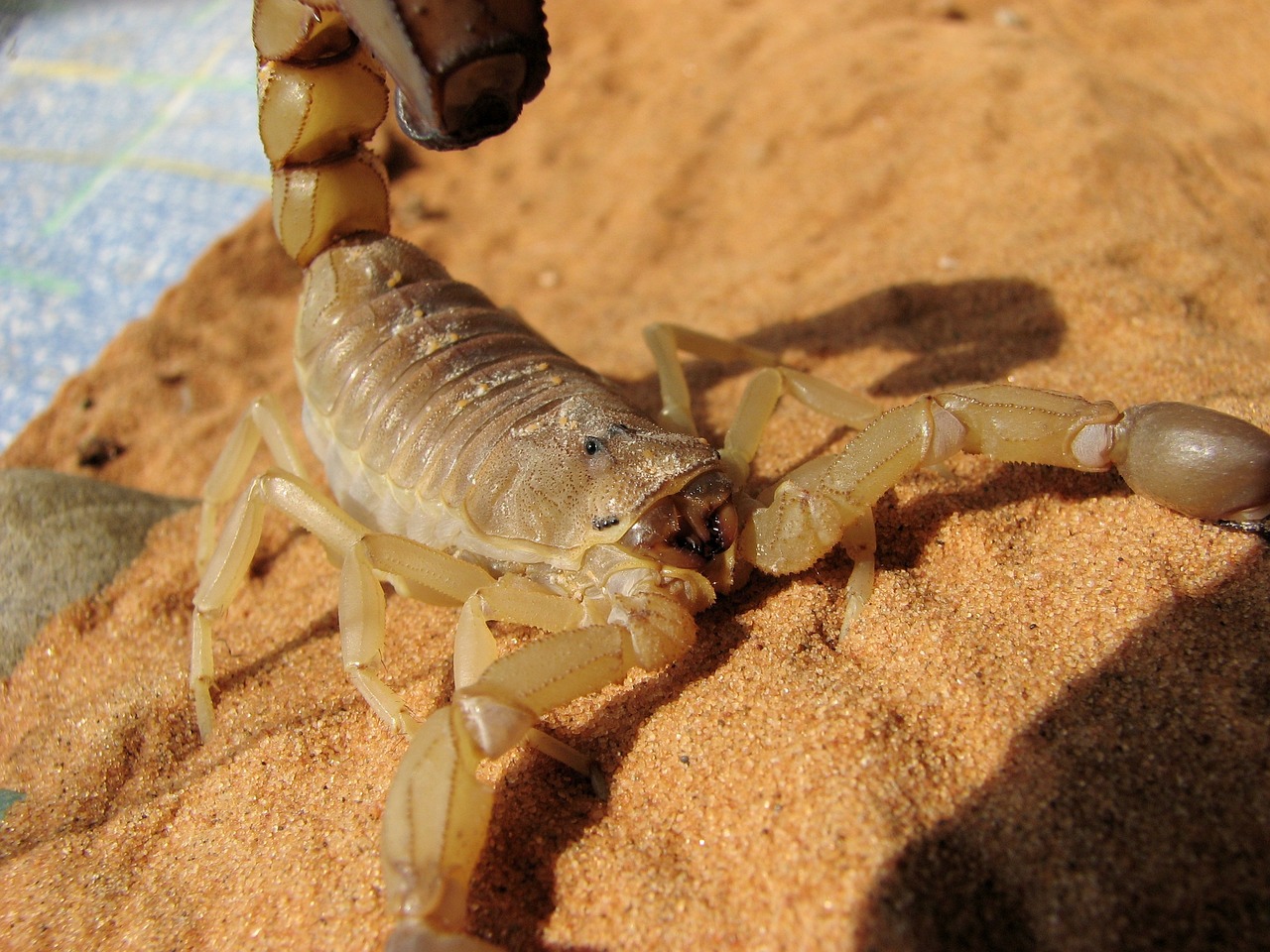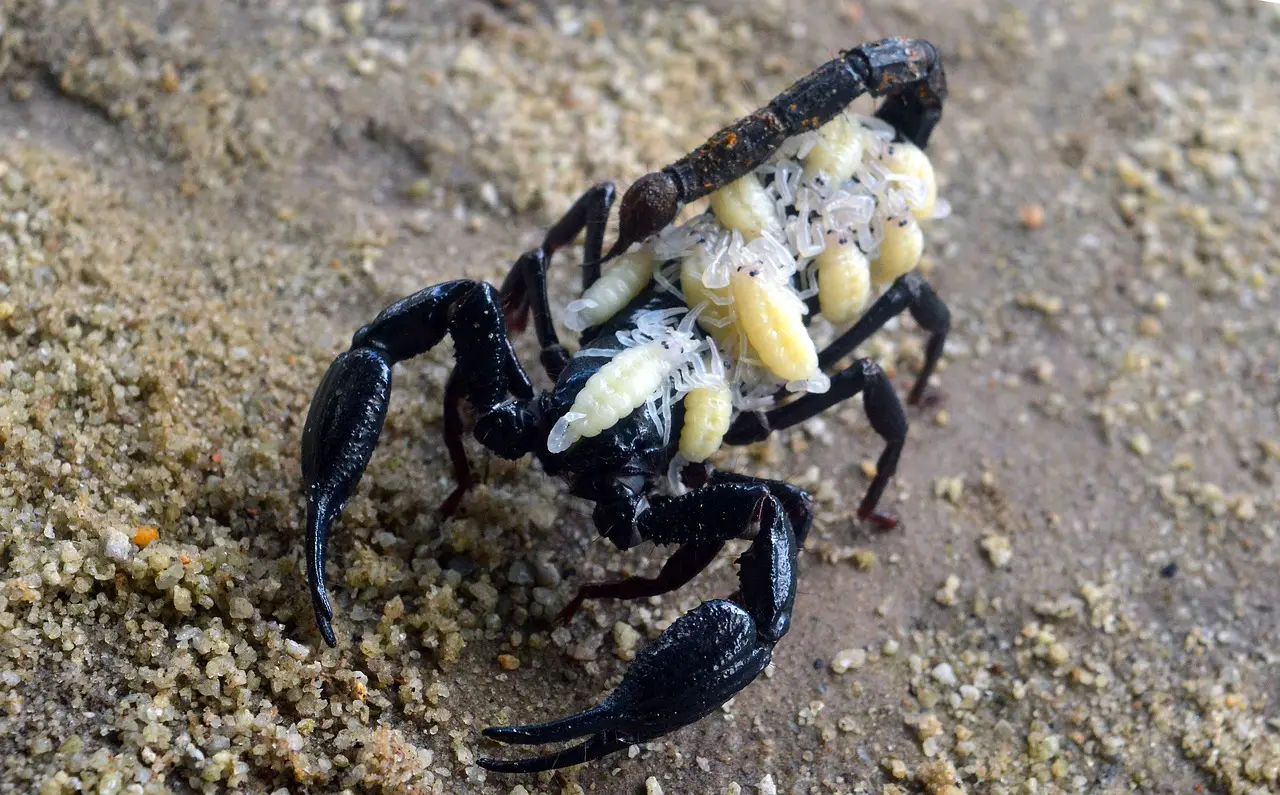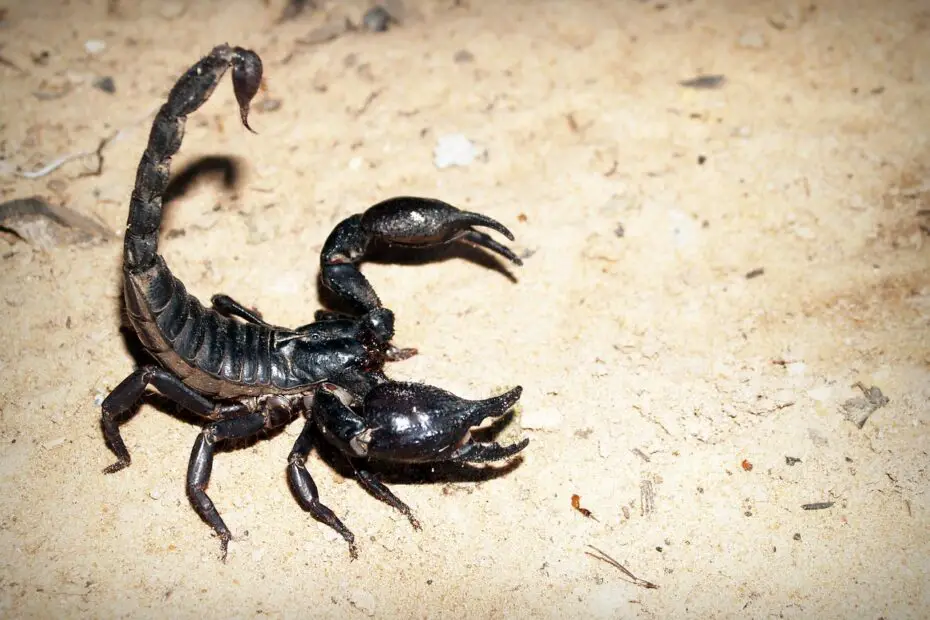Are you seeking an unconventional pet that will captivate your curiosity and add a touch of intrigue to your home? Look no further than scorpions! These arachnids, with their venomous stingers and unique characteristics, are gaining popularity as exotic pets.
In this article, we will explore the benefits of having scorpions as pets, guide you in choosing the right species, help you set up their habitat, provide feeding and care tips, discuss handling and safety precautions, address common health issues, and conclude with some frequently asked questions.
You may also want to know if an emperor scorpion sting hurts.
Benefits of Having Scorpions as Pets
Fascinating and Unique Creatures
Scorpions are mesmerizing creatures that have been around for millions of years. Their iconic appearance, with their segmented bodies, pincers, and venomous tails, makes them a captivating addition to any pet collection. The way they move, hunt, and interact with their environment is a constant source of fascination and awe.

Low Maintenance Pets
One of the appealing aspects of scorpions as pets is their low maintenance requirements. Unlike more demanding pets, scorpions do not need constant attention or social interaction. They are solitary creatures that can thrive in a well-designed habitat with minimal human intervention.
Educational Opportunities
Keeping scorpions as pets offers a unique opportunity for education. By observing their behavior and understanding their natural habitat, you can learn about the intricacies of arachnid biology and ecosystem dynamics. This firsthand experience can be an excellent educational tool for children and adults alike.
Choosing the Right Scorpion
Popular Scorpion Species
When it comes to selecting a scorpion species as a pet, it’s crucial to choose one that suits your preferences and experience level. Some popular choices include the Emperor Scorpion, Asian Forest Scorpion, and Arizona Bark Scorpion. Each species has its own unique characteristics and care requirements.
Considerations for Beginners
For beginners, it’s recommended to start with a docile and hardy species like the Emperor Scorpion. These scorpions are relatively large, easy to handle, and have a mild venom that poses no serious threat to humans. Additionally, they are more forgiving when it comes to environmental conditions, making them an ideal choice for first-time scorpion owners.
Setting Up the Scorpion Habitat
Terrarium Requirements
Creating a suitable habitat is crucial for the well-being of your pet scorpion. A terrarium with ample space, proper ventilation, and secure closures is essential. The size of the enclosure should depend on the species you choose, providing enough room for the scorpion to move around comfortably.
Temperature and Humidity Control
Maintaining appropriate temperature and humidity levels is vital for the health of your scorpion. Most species thrive at temperatures between 75°F and 85°F (24°C and 29°C) during the day, with a slight drop at night. It’s important to provide a temperature gradient within the terrarium to allow your scorpion to regulate its body temperature effectively.
Hiding Places and Substrate
Scorpions are nocturnal creatures that require hiding places to feel secure. Furnish their terrarium with rocks, logs, or artificial decorations that provide ample hiding spots. Additionally, choose a suitable substrate, such as sand or a mixture of sand and soil, which allows for burrowing and mimics their natural environment.

Feeding and Care
Feeding Schedule
Scorpions are carnivorous creatures that primarily feed on insects. Establish a regular feeding schedule to ensure your scorpion receives the nutrition it needs. Adult scorpions typically require feeding once or twice a week, while younger individuals may need more frequent meals.
Suitable Prey Items
Provide your scorpion with a variety of live prey items, such as crickets, roaches, and mealworms. It’s crucial to offer appropriately sized prey that matches the scorpion’s body size. This helps prevent overfeeding or potential harm to your pet.
Hydration and Water Sources
While scorpions can obtain most of their required moisture from their prey, it’s still important to provide a small water dish within the terrarium. Ensure the water dish is shallow and accessible, allowing your scorpion to drink or soak if needed.
Handling and Safety Precautions
Understanding Scorpion Behavior
Before attempting to handle your scorpion, it’s essential to understand its behavior. Scorpions are generally not aggressive but may sting if they feel threatened or cornered. Learn to recognize signs of stress or discomfort, and respect their boundaries.
Proper Handling Techniques
When handling a scorpion, it’s crucial to do so with caution and care. Use appropriate tools such as long forceps or specialized scorpion handling tools. Always approach the scorpion calmly and avoid sudden movements that may startle or stress it.
Safety Measures
To ensure your safety and the well-being of your scorpion, take necessary safety measures. Avoid handling scorpions without experience or knowledge, and always wash your hands thoroughly after any contact with them. Additionally, keep their terrarium securely closed to prevent escape.
Common Health Issues and Remedies
Dealing with Molting Problems
Molting is a crucial process for scorpions to grow and shed their old exoskeleton. Occasionally, scorpions may encounter difficulties during molting, such as getting stuck or experiencing incomplete molts. Ensure the humidity levels are appropriate and provide a suitable substrate that allows for burrowing to aid in successful molting.
Recognizing Signs of Illness
Although scorpions are generally hardy creatures, they can still experience health issues. Look out for signs of illness, such as decreased appetite, lethargy, or abnormal behavior. If you notice any concerning symptoms, consult with a veterinarian experienced in exotic pets.
Basic First Aid for Scorpions
In case of an unfortunate sting incident, it’s crucial to remain calm. Most scorpion stings cause localized pain and swelling, similar to a bee or wasp sting. Clean the affected area with mild soap and water, apply a cold compress to reduce swelling, and seek medical attention if necessary.
Frequently Asked Questions
- Can scorpions be kept together in the same enclosure?
- It’s generally recommended to house scorpions separately to avoid potential territorial conflicts or cannibalism.
- Are scorpions legal to keep as pets everywhere?
- Laws regarding pet scorpions vary by location, so it’s important to check local regulations before acquiring one.
- Do scorpions require UV lighting?
- Scorpions are nocturnal creatures and do not require UV lighting. Providing them with low-intensity artificial lighting for observation purposes is sufficient.
- Can scorpions be handled without risk?
- While handling scorpions can be done safely with experience and caution, it’s generally recommended to appreciate them from a distance to avoid potential stings.
- How long do scorpions typically live in captivity?
- Depending on the species, scorpions can live anywhere from 2 to 10 years or even longer in captivity with proper care.
Conclusion
In conclusion, keeping scorpions as pets can be a rewarding and educational experience. These fascinating creatures offer a unique glimpse into the world of arachnids, and their low maintenance requirements make them suitable for various enthusiasts. By following the guidelines for selecting the right species, setting up a suitable habitat, providing proper care, and taking necessary safety precautions, you can enjoy the company of these captivating arachnids in your home.
